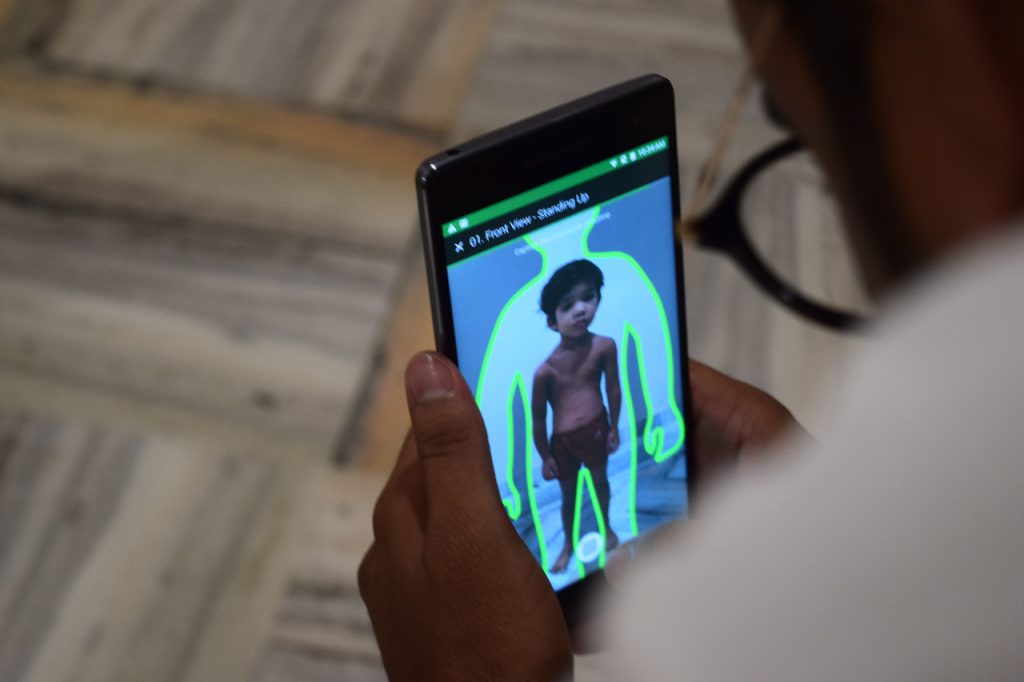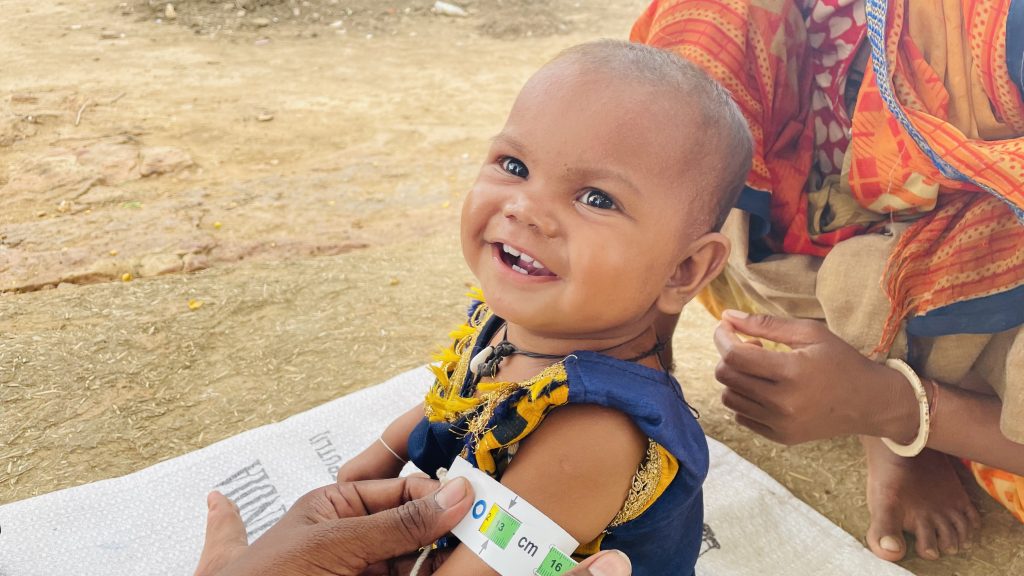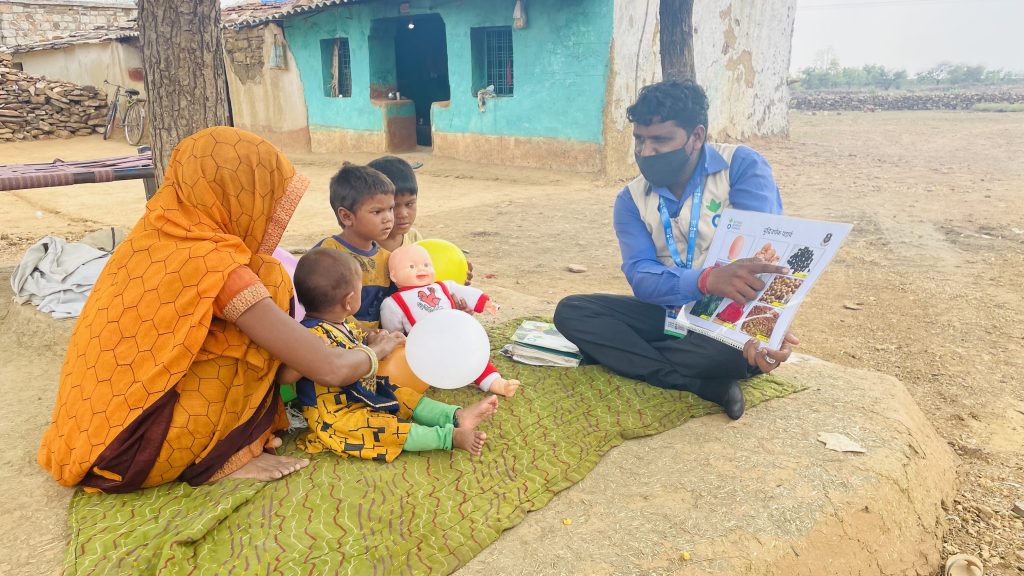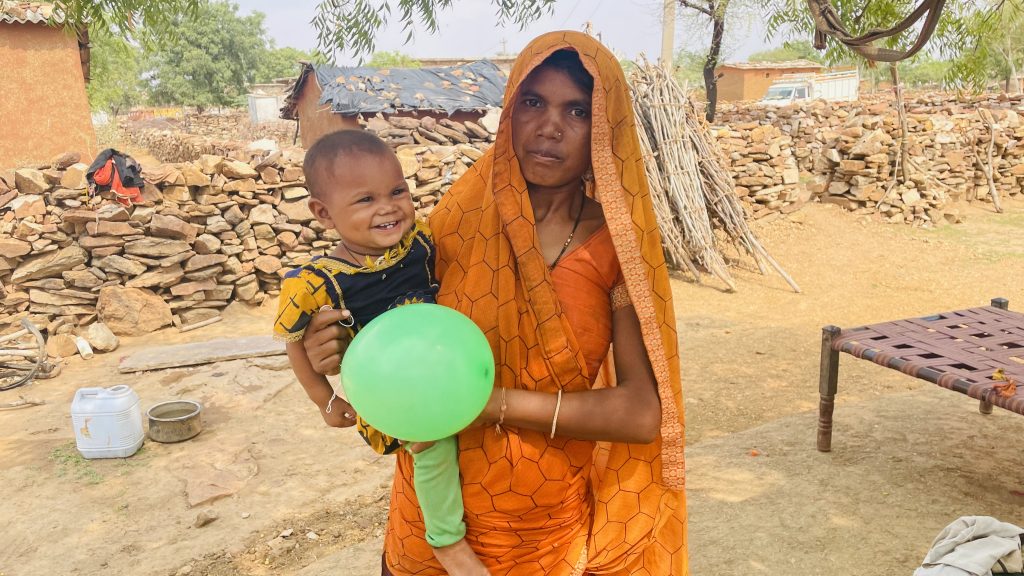Since the outbreak of COVID-19 pandemic, ensuring food and nutrition security of children through regular and correct monitoring processes became even more important. The pandemic pushed millions out of job, most of whom were surviving on meager income coming from rural India. With no or limited income, and disruption of Anganwadi services to ensure regular health screening of children, the situation became worrisome. And for then six-month old Ranjita’s father, Har Govind from Baran, Rajasthan the story was no different.
Welthungerhilfe’s partner Action Against Hunger (ACF) have been undertaking routine monitoring and health screening of children at local Anganwadi centers in Rajasthan under the BMZ supported Child Growth Monitoring (CGM) project during the pandemic. CGM is a mobile based application which scans the body mass of the children using AI and calculates their height and weight and thus helps in accurately detecting undernutrition. In India, lack of trained local frontline and Anganwadi workers and errors in data collection due to lack of understanding of the standard cut offs on the measuring scales often results in misinterpretation of a child’s nutritional status. To address this, the CGM app has been implemented to undertake accurate and real-time anthropometric measurements of children in the rural areas.

Real time detection of severe malnutrition by CGM app
In Baran, during a routine screening, community mobilizer Ramprasad Koli came across Ranjita who looked frail and cranky. She was the youngest of the four sisters living with his parents in Faldi village. Here, the locals are mostly daily wage labourers who are illiterate, ignorant and have strong superstitious believes. Rather than visiting local health centers, people prefer to rely on quacks and traditional healers. Ranjita’s mother had never visited the district hospital at Baran before. In such a scenario, providing immediate medical help to Ranjita became a serious challenge.
When Ramprasad screened Ranjita with the CGM app, she was found to be severely acute malnourished (SAM) with her mid-upper arm circumference (MUAC) being only 95mm. She weighed as less as 3.6 kg and had continuous fever and diarrhea. Although Ranjita needed immediate medical support, her parents refrained from visiting a hospital.
Ramprasad started visiting the child’s home regularly with other community mobilizers from the project and generated awareness on health and hygiene, healthy cooking techniques, hand washing, and balanced diet. After series of counseling sessions with the parents, Ramprasad was successful in convincing them to admit Ranjita at the local malnutrition treatment center (MTC) with the help of ASHA and Anganwadi workers on 28th September 2020. Upon receipt of medical treatment and care at the center, Ranjita’s MUAC, Z-score and weight improved to 96 mm, -2sd and 4.140 kg respectively, and was discharged 8th October 2020.

Regular counseling and routine screening post medical support
Over the months since her discharge from the MTC, Ranjita is being closely monitored by the ACF team. Her hemoglobin, MUAC and weight has improved substantially due to the regular knowledge support received from the team. Ranjita’s parents have also started trusting Ramprasad more than ever. Through continued monitoring with the CGM app, counseling, and home visits, with Anganwadi and ASHA workers, Ramprasad is able to bring about a gradual change in Ranjita’s home.
During the pandemic, the project also supported the family with a nutritious food basket. They also began taking take-home ration (THR) and other essential services from the local Anganwadi center. Ranjita is now an active and healthy toddler, and her MUAC measurement as on 9th June, 2021 is 130 mm.

“It was a very difficult time for us. Ranjita is our only daughter and when she became sick, I was very concerned. But I had no knowledge of hospitals. It was because of the continuous counselling support which we received from the team that Ranjita is now a healthy and happy child,” shares Mamta, Ranjita’s mother.
Despite the challenges brought by COVID19, the community mobilizers under the CGM project continues to be in regular touch with many such families. He is regularly supporting them with screening, counseling, and health checkups. The CGM app is accurately accessing the anthropometric measurements of the children to detect the early signs of malnutrition in the area. The team is also training the local Anganwadi and frontline government healthcare workers to efficiently use the CGM app so that more children can be screened, and undernutrition can be detected at an early age. It was because of the CGM app that Ranjita’s health status could be accurately judged at real-time which led to providing her with immediate medical support thereby saving her life.

With inputs received from Action Against Hunger.



